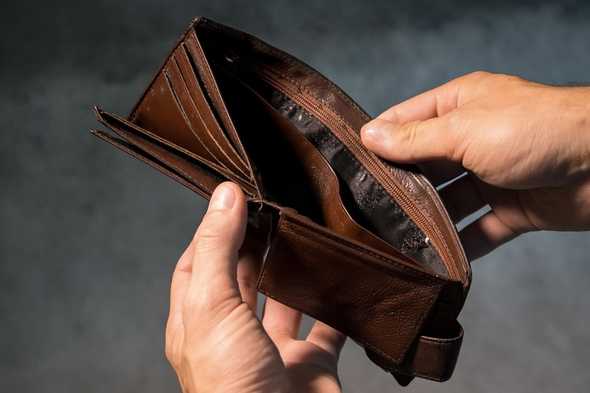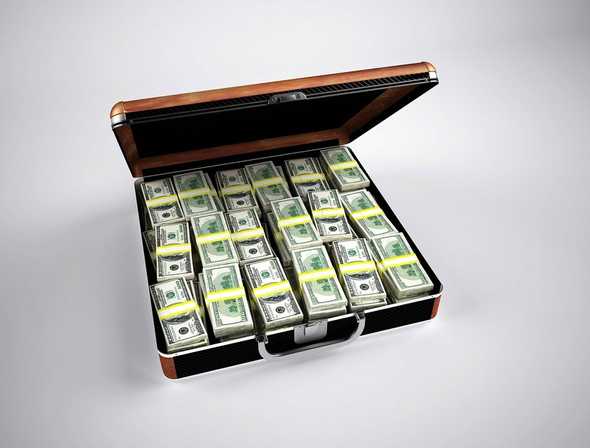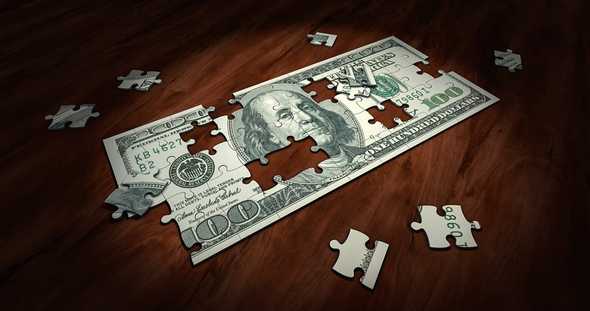Lottery vs. Stock Market: Which Will Make You More Money?
Most people who play the lottery probably wonder if there aren’t better ways of making money, like the stock market. Which one will make you more money—lottery tickets or stocks?
Investing in the stock market will offer you a better return on investment over the long term, but the results are not immediate. The potential rewards are higher with a lottery, but the probability of winning a jackpot is small.
Deciding whether to play the lottery or save your money and invest it in the stock market is complicated. We will go over the pros and cons so that you can decide whether playing the lottery is right for you.
Playing the Weekly Lottery Is Not a Good Investment
What are the odds of winning at the Mega Millions or Powerball jackpot? Ridiculously small. Picture yourself sitting in the AT & T stadium, watching the Dallas Cowboys play. The stadium seats around 100,000 people, and one person is slated to win 1 million dollars. Now picture 2000 stadiums filled with people, and you begin to understand your odds.The odds of winning Mega Millions are 1 in 302,575,350. Powerball’s odds are slightly better—1 in 292,201,338.
What about winning anything at all? Even 10 dollars would be better than nothing, right? So what are the odds of winning something in a Powerball game? Ignoring the Power Play option, the odds of winning 4 dollars are 1 in 38, and the odds of winning a prize are 1 in 25.
Buying 25 tickets should net you at least 4 dollars, although the odds are that you will earn slightly less than 50 dollars for your 100 investment.
If you want to simplify it even more—expect to lose 95 cents every time you buy a two-dollar ticket.
The Odds of Winning at Scratch Tickets Are Better
Scratch off tickets get a bad rap and don’t garner the headlines of a huge Powerball jackpot. That’s because the winnings are much smaller. A 2 million prize does not get the same headline as a 350 million jackpot. However, scratch-off tickets have two advantages over Powerball or Mega Millions.
First, the odds of winning something from a scratch-off are much better. Because the odds vary from game to game, it’s difficult to give an exact number. You can count on the odds being better than 1 in 5 that your Scratch-Off ticket will be a winner.
Also, unlike the multi-million-dollar jackpot games, a player can increase the chances of winning at Scratch-Off games by making several strategic moves:
- Store choice. Since winning tickets are theoretically randomly distributed, a store where several people have won should have fewer winning tickets remaining.
- Timing. Buying tickets when the big prizes have already been claimed decreases your chances of winning. Check state lottery websites—most update the winnings frequently.
- Amount purchased. Generally, it’s best to stick to buying a stack of tickets from one game instead.
- Picking games. Not all games are equal. Some games have a better rate of return than others.
Sites such as Scratch Off Odds list odds for many of the games in various states if you want to improve your chances of winning a payout.
The Odds of Making Money in the Stock Market
Many people say that buying stocks is a form of legalized gambling. They argue that buying stocks without the guarantee of making money is the same as buying a lotto ticket where you also do not have a guarantee that you will win.
Setting aside whether that argument is accurate or not, what are the odds of making money in the stock market? When someone invests a dollar in the stock market, one of several things can happen. One is that the stock will neither increase nor decrease in value. So you have not won or lost anything yet.
However, that rarely happens. It is more likely that the stock will either make money or lose money. If we were to use a coin analogy, with heads being a win and tails being a loss, the odds of winning (or losing) are 50-50 or 1 out of 2. Those are far better odds than the lottery, right?
If only it were that simple.
What Are the Different Types of Probability?
Before we continue, it might be a good time to review the basic types of probability.
Subjective Probability
When a person uses their own experience to decide if something is going to happen, when people investing in the stock market use their “gut instinct,” they rely on subjective probability.
If a store has sold a winning lottery ticket several times in a row, some players will go out of their way to buy at that store. They decide on personal beliefs such as that some stores are luckier than others or that the game is rigged.
A Priori Probability
If an event’s likelihood is limited, say by the number of balls used in a lottery, it is a Priori probability. The Mega Millions or Powerball lotteries fit into this category. Every week the odds of winning are the same because the number of balls is the same. This is not true in Scratch-Off games since your odds change depending on several factors.
A priori probability has limited usefulness in the stock market because many outside factors influence whether a stock price goes up or down.
Gambler’s Fallacy
Believing that a random event is affected by other random events. Every time a coin is tossed, the chances of it landing heads is 50-50. Let’s say a coin has landed heads five times. If a gambler thinks that the odds of the coin landing on heads is better than 50-50 on the next toss, that person has forgotten that each random event is a separate one.
In stocks, investors use gambler’s fallacy when they think that if stocks have gone up for several days, then it will go down next.
Compound Probability
Combining the probability of more than one event is called compound probability. A single coin toss has a 50-50 chance of landing on heads. In compound probability, you calculate the odds of having the coin land on heads twice in a row by multiplying the odds for each toss.
So the chances of getting two heads in a row are 1 in 4— ½ x ½ = ¼ (or .50 × .50 = .25). Your chances of getting three heads in a row is reduced to 12.5% (.5 × .5 × .5 = .125).
When Mega Millions introduced additional balls, they used the compound probability to reduce the odds of winning. This led to larger jackpots and increased sales.
In stocks, compound probability is far more complicated because stocks are mutually inclusive. This means that whether a stock goes up or down in value depends on many factors, including:
- The performance of other stocks in the same industry
- The company’s financial health
- Other trader’s views and feelings
- Overall economy
Who Plays the Stock Market?
There are several different “players” in the stock market:
- Stockbrokers. These are the people who buy and sell stocks for others. Brokers can be members of a stock exchange or work for firms that buy and sell stocks.
- Financial Advisors. People who give advice on what you should do are not stockbrokers. They do advise their clients on what to do with their money. If your lottery winnings are large enough, you will seek out a financial advisor who would suggest how to invest your money. That advice would most likely include investing part of your winnings in stocks.
- Investors. People who put money into the stock market typically work through stockbrokers. It is possible to purchase stocks directly from a company, but most investors find it too complicated.
Do Only the Rich Play the Stock Market?
A study in 2016 by the Federal Reserve found that just over 50 percent of families in America had an investment in stocks. Not all those investments were directly in stocks. Many people’s stocks are tied to their retirement accounts, such as IRAs or 401(k), as well as mutual funds.
But the percentage of people who own stock goes up among people who have more income. Out of people who are in the top-10 income bracket, 90% of them own stock. Only a third of people who are in the bottom half of the income bracket own any stock.
Who Buys Lottery Tickets?
People who have less money buy more lottery tickets. Several studies have shown this. For example, a study at Duke University showed that the poorest one-third of Americans purchase half of all lottery tickets. Other studies have shown similar results.
So why do poorer people buy more lottery tickets? The reason is that often people without much money believe they will only get rich by playing the lottery. They are not entirely wrong, either. It isn’t easy to become rich. We’ve all heard the saying—it takes money to make money.
Rich people play the lottery also, but only when the jackpot is huge. A 2002 study at Harvard University showed that when jackpots reached 150 million and higher, people who lived in wealthier zip codes bought as many tickets as people who live in more impoverished neighborhoods.
How Much Money Can Someone Make in the Stock Market?
The stock market seems like a roller coaster ride—one day the stock market is up, and the next day it is down. Unless you buy and sell stocks, hearing that the Dow is up 200 points does not mean much.
A lottery, by contrast, is clear. You invest several dollars, and you will know what you won anytime from as soon as you scratch off the ticket to several days if you buy a Mega Millions or Powerball ticket.
So how does the stock market work? Let’s say that you plan to invest 100 dollars. How much will you earn? People who have analyzed the stock market have an answer: the average rate of increase is approximately 10% a year. That number can vary—some years the return is higher and others lower, but over 80 years, the 10% rate holds steady.
Based on those figures, the 100 dollars you invested should, on average, be worth $110.
A year later.
That’s right—those 10% returns are based on annual figures. The odds that the stocks you bought will be worth twice as much in a month are small.
Something else you need to factor in, however. The odds of losing the entire $100 are small, especially if you invest in an established company. In a bad year, you might lose $10. If you recall, for every two dollars you spend on lottery tickets, expect to lose one (unless you win big).
When one considers that a landlord, car dealership, or credit card company is not going to wait a year to get paid, it’s easy to see why many people see the lotto as a way to make the money they need to pay the bills.
How Much Does It Take to Invest in the Stock Market?
Most advice you will hear is that you shouldn’t waste your money on the lottery. How much money do you need to invest in the stock market? A Powerball ticket is a two-dollar investment. Don’t you need a lot more to invest in stocks?
Not if you microinvest.
What Is Micro-Investing?
Maybe you are one of those people who toss your change into a container when you get home. Micro-investing firms take the change from purchases you make with a debit or credit card and invest that change. The investment isn’t made directly to a stock.
Instead, the firms place your money into Exchange Traded Funds (ETF), which are funds that include stocks, as well as bonds, real estate, and other assets. Some ETFs focus on a particular industry or commodity while others specialize in bonds or currency.
Regardless of their focus, ETFs are traded just like stocks, and their value can go up and down many times a day. However, because they are diversified, they are considered safe investments.
How Does Micro-Investing Work?
Say you buy a five-dollar sandwich for lunch, and with tax, it comes out to $5.25. When you swipe your debit card, the micro-investing platform you use takes the change and invests it in an ETF.
Acorns, Stash, and Robinhood, are three of the most popular micro-trading apps. All offer ways to start investing in ETFs with little to no money. The features they offer vary, so you should research which would best fit your needs. Some focus more on stocks, while others also provide an option to save your money. How much or little you have to pay also varies, so do your research.Will you get rich using a micro-investing app? Probably not. However, your change can add up. Add up the 75 cents from lunch, plus the change from your afternoon pick-me-up latte, and before you know it, you have enough to have an emergency fund.
Can Lottery Winners Lose Money?
If you think that lottery winners can’t lose their money, think again. In one study, in Florida, lottery players who won between $50,000 and $150,000 and were having financial difficulties continued to have them after winning. Another study showed that out of every dollar that a lottery winner earns, they save just 16 cents.
There is even a name for this: “The lottery curse.” These lottery winners either have bad luck, become easy marks for con artists, spend through their money, or make bad investments.
In worst-case scenarios, they get murdered or die. This has happened to:
- Abraham Shakespeare. First, he was sued by the person who bought the tickets for him. Then the woman who was going to write about his experiences wound up murdering him. But not before she had bought herself a Corvette and taken his house.
- Jeffrey Dampier, Jr. He was murdered by his sister-in-law and her boyfriend.
- Billy Bob Harrell, Jr. Sadly, after winning 31 million, the stress of constant requests for money led to divorce, family members arguing over money, and eventually suicide.
This article in Business Insider details 20 other lottery winners who went broke, including Evelyn Adams, who won the lottery two times and then lost her winnings gambling in Atlantic City.
Bottom Line
The odds are in your favor if you play the stock market. Your chances of winning the lottery are much smaller than the likelihood that you will make five to ten percent on your investment in stocks. However, making a lot of money in the stock market requires having a lot of money to invest. And the odds of earning millions on a small investment are not high either.
The best thing to do is to hedge your bets—invest some money in an IRA or start micro-investing and go ahead and play the lotto. If your lotto tickets are worthless, at least you have put some money aside. And if you win—you will want to find a financial advisor to help you invest your winnings. Then you’ll be playing the stock market anyway.











